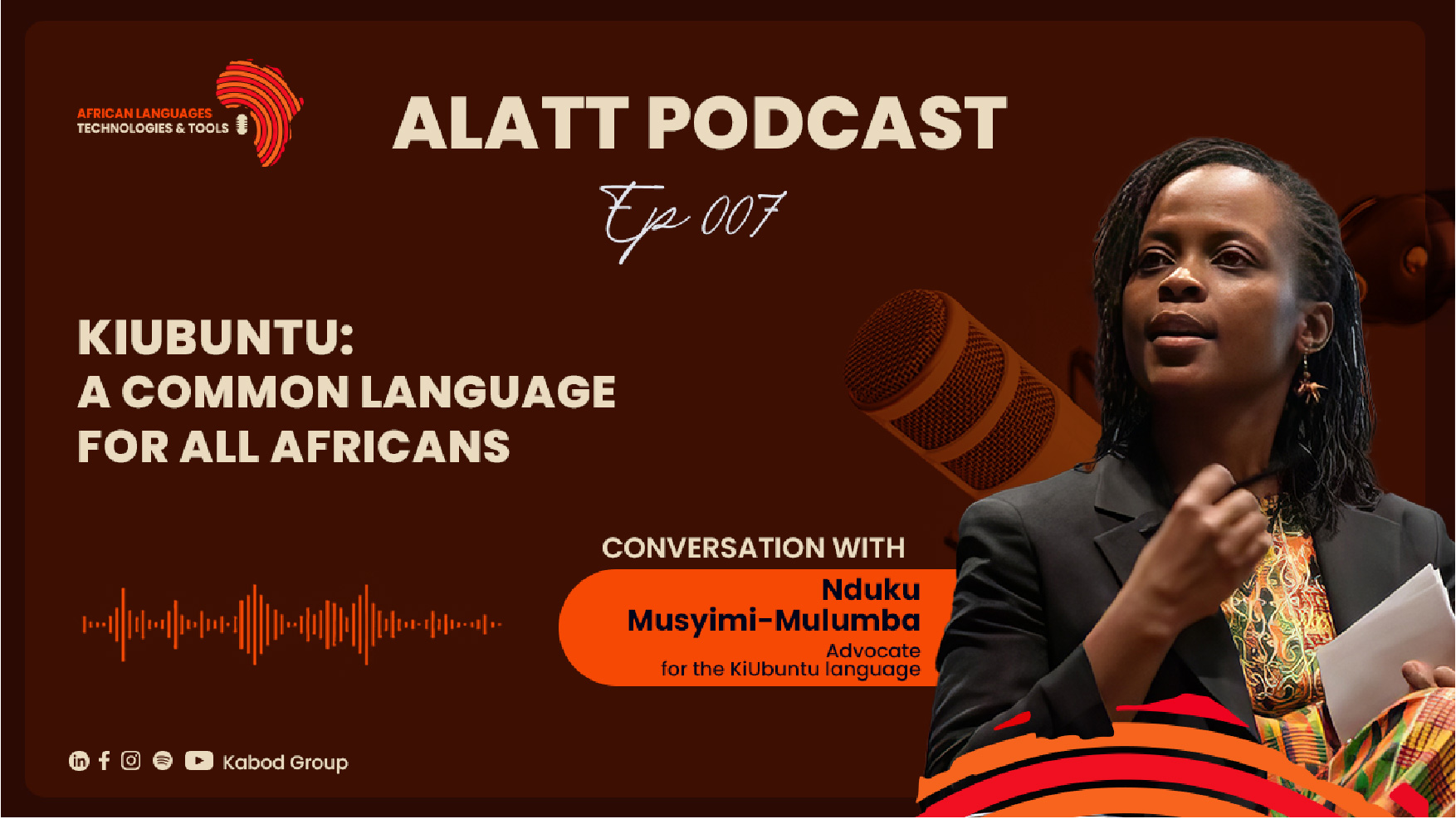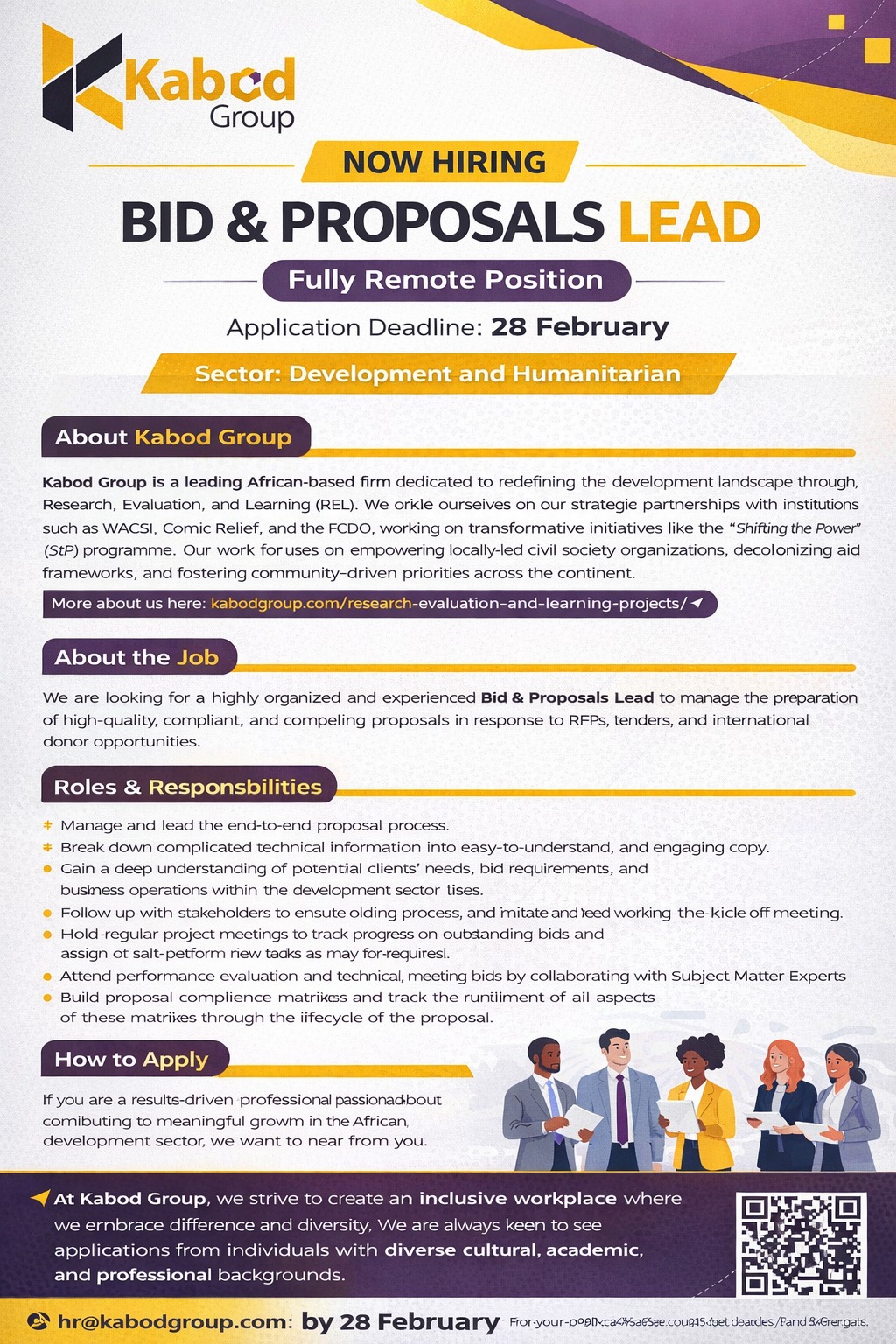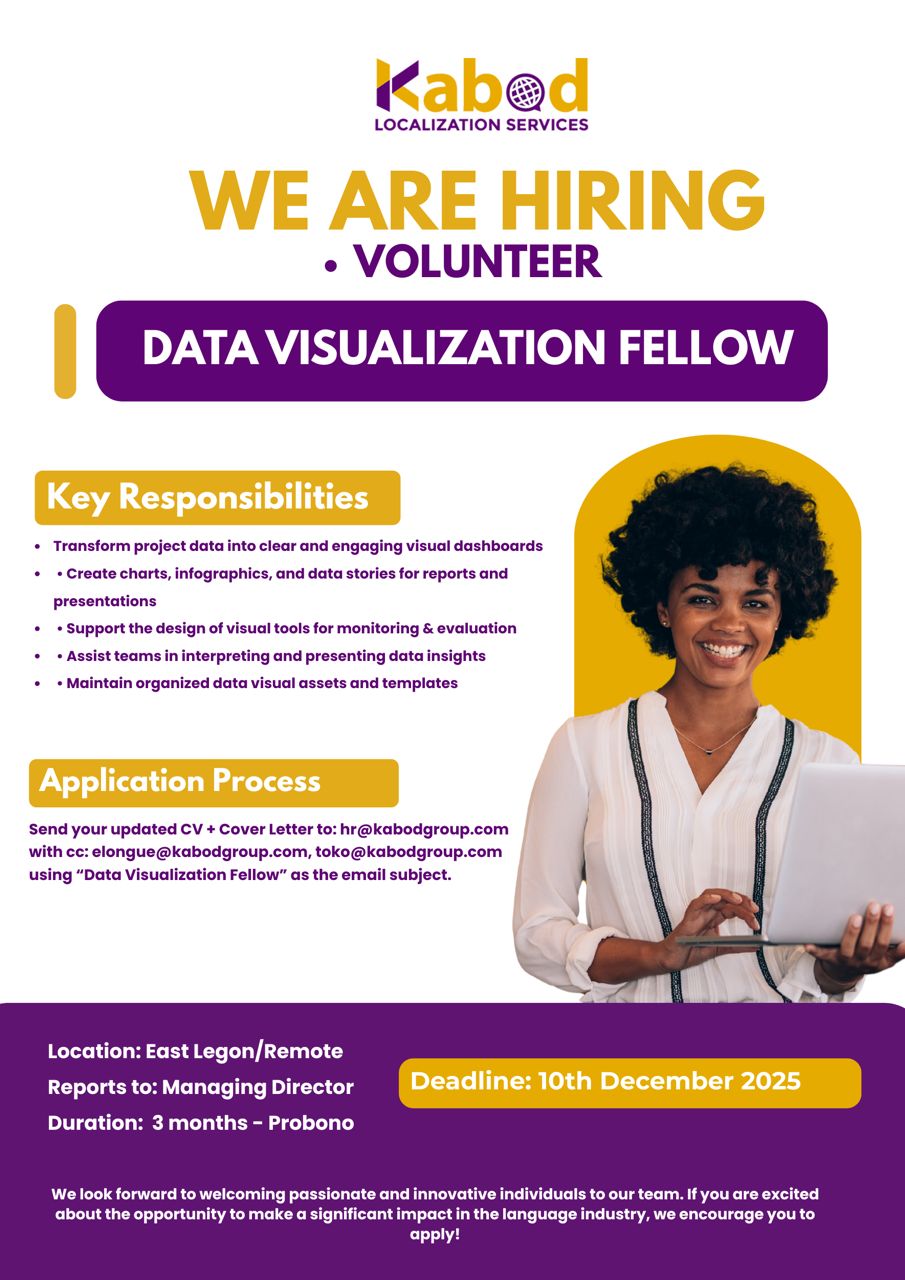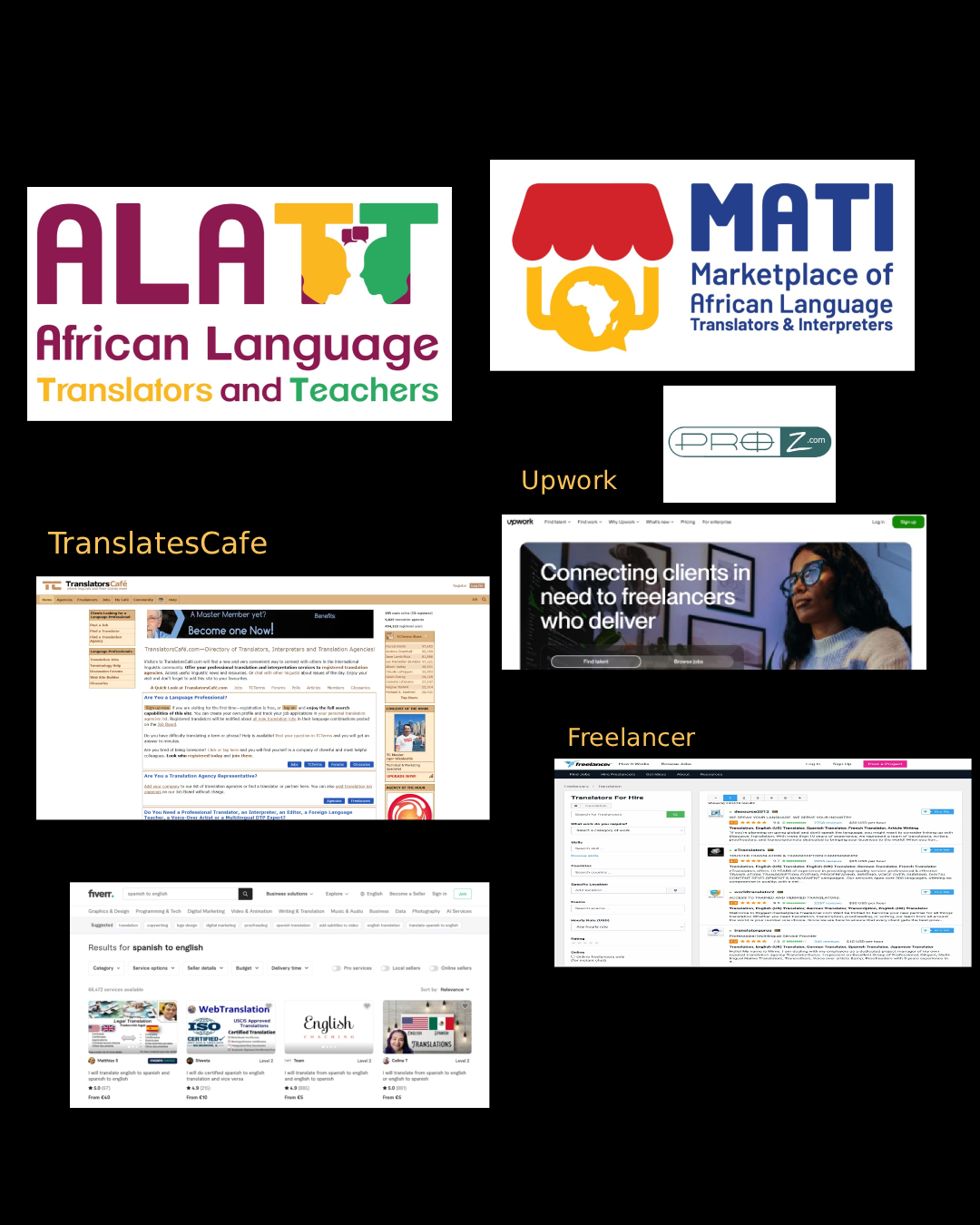Nduku Musyimi-Mulumba from Mbôngi Ya Ubuntu and a strong advocate for the KiUbuntu language
Kabod is a language service provider specialising in quality language services in African and other Western languages. Our primary goal is to elevate African culture through our languages.
Nduku Musyimi-Mulumba passionately advocates for WanaUbuntu (African People Globally) rights, confronting systemic racism in the US federal government and beyond. She studies and promotes Pan-Africanism, dedicating herself to educating and uniting the global WanaUbuntu community against oppressive structures. Nduku co-founded Kumbukeni, an African-owned podcast, and started Mbôngi Ya Ubuntu, an organisation focused on financial liberation and cultural preservation. She teaches KiUbuntu (commonly known as Kiswahili) and works to demonstrate its significance as a unifying Bantu language.
Kabod: Can you explain the significance of your organisation, Mbôngi Ya Ubuntu, and its mission to promote the language you refer to as KiUbuntu?
Nduku: A few years ago, I began to examine my perspectives on African history and international relations critically. Initially, I held a somewhat naive view, believing that hard work alone was sufficient for success and that Western nations, particularly the United States, were benevolent forces in global affairs.
However, my outlook changed dramatically when I moved to the United States. Living there exposed me to the realities of how Africans and African Americans are often perceived and treated. I interacted with descendants of enslaved Africans and learned about the deeper historical context and systemic structures that have been designed to maintain inequality.
This awakening led me to take action. In collaboration with like-minded individuals, we established Kumbukeni, a media outlet allowing Africans to control their narrative. Later, recognising the need for a more comprehensive approach, we founded Mbôngi Ya Ubuntu, whose significance lies in its mission to promote our heritage, including the KiUbuntu language, and create a platform for self-determination and positive change for our people.
Kabod: What evidence do you have that KiUbuntu is distinct from the more widely known Kiswahili language, and what are the key differences between the two?
Nduku: We refer to the language commonly known as “Kiswahili” as “KiUbuntu”. This change in terminology reflects our understanding of the language’s true origins and cultural significance.
In many African languages, the prefix “Ki—” denotes “the language of.” Kiswahili would thus mean “the language of the Swahili people,” descendants of Arab settlers. However, we believe this language predates Arab arrival in East Africa by at least a century.
Our evidence lies in the linguistic commonalities across Bantu languages throughout Nsi Ya Ubuntu (our preferred term for Africa, meaning “land of Ubuntu”). For instance, the root “ntu” is widespread in these languages.
KiUbuntu is a composite of multiple Bantu languages, not a creation of Arab descendants. By renaming it, we’re reclaiming our cultural heritage and acknowledging the language’s true origins among the region’s indigenous people.
The key difference is not in the language itself, but in its attribution. We see KiUbuntu as the language of the Ubuntu people – all of us who share this cultural heritage – rather than a language belonging to a specific coastal group with Arab ancestry.
This renaming is part of a broader effort to decolonise our understanding of our history and culture, challenging narratives imposed during periods of Arab and European colonisation.
Kabod: Can you share why it’s important to preserve and promote this language?
Nduku: Preserving and promoting KiUbuntu is vital for fostering unity across Nsi Ya Ubuntu (Africa). As a common language, it can bridge communication gaps between diverse African communities, potentially reducing conflicts arising from perceived differences. This linguistic unity is crucial in cultivating a sense of shared identity and brotherhood among African peoples.
KiUbuntu is also a powerful tool for cultural independence and decolonisation. Using our language, rather than that of colonisers, is essential in our journey towards true liberation. KiUbuntu allows us to express our struggles and aspirations in our terms, free from the linguistic legacy of colonialism.
We are actively evolving KiUbuntu to be more inclusive and representative of all African nations. This includes incorporating words from West African languages and replacing Arabic-origin terms with those from various African languages. For instance, “rafiki” (friend) becomes “adamfo” (from Twi), and “saba” (seven) becomes “asa” (from Igbo). Through these efforts, we’re not just preserving a language, but nurturing a tool for cultural empowerment and pan-African unity.
Kabod: Can you elaborate on your organisation’s methodologies and approaches to collect data to demonstrate KiUbuntu’s distinct identity?
Nduku: Our organisation collects data on KiUbuntu’s distinct identity through direct interactions with Ubuntu speakers across regions. We engage with various African language speakers to find alternatives for Arabic words in KiUbuntu and collaborate with established scholars to expand existing research.
We prioritise developing our own linguistic resources and databases that accurately reflect KiUbuntu’s nuances, ensuring the preservation and evolution of our language remain in our hands. This approach avoids reliance on Western-created translations that often lack cultural context.
To further our mission, we offer KiUbuntu lessons and are working on publications in the language. These efforts promote KiUbuntu and provide data on its usage and evolution.
Kabod: What challenges have you faced in promoting KiUbuntu, and how do you navigate resistance or skepticism from those who may not recognise its distinct identity?
Nduku: We face several challenges in promoting KiUbuntu, including misconceptions about its identity, fears of cultural loss, competing language preferences, and colonial language bias. These issues reflect deeper concerns about linguistic colonialism and cultural preservation among African people.
To address these challenges, we consistently educate and engage with our audience. We clarify KiUbuntu’s origins, share personal experiences of multilingualism, and respectfully counter-arguments against its adoption. Our persistent efforts to provide factual information and engage in dialogue are crucial for gaining wider acceptance of KiUbuntu as a distinct and unifying African language.
Kabod: How do you envision the future of KiUbuntu, and what steps do you believe are necessary to ensure its preservation and wider adoption?
Nduku: We envision KiUbuntu as a unifying language across Nsi Ya Ubuntu (Africa). Our preservation and adoption strategy focuses on education, addressing misconceptions, and developing comprehensive learning resources. We’re combating linguistic colonialism by encouraging native speech patterns and promoting African linguistic pride.
To support wider adoption, we’re building language infrastructure, publishing in KiUbuntu, and creating digital learning platforms. We’re also working to incorporate KiUbuntu into educational curricula and business operations.
These efforts aim to preserve our cultural heritage while fostering pan-African unity. Though challenging, we believe this work is essential for the future of Nsi Ya Ubuntu and its diverse communities.
Kindly find below the products and services of Mbôngi Ya Ubuntu
- KiUbuntu Alphabet Flashcards at $25 per set plus shipping and tax. (Anyone who buys the cards during your show will have free access to the $10 accompanying pronunciation video with the code ‘ALATT071824’)
- PURCHASE HERE: https://checkout.mbongiyaubuntu.org/b/00gfZ92Lm4lKa7S3cf
- The KiUbuntu Alphabet Pronunciation Video at $10
- PURCHASE HERE: https://checkout.mbongiyaubuntu.org/b/6oEfZ9bhS8C093OdQQ
- BOOK: ‘UBULUNGISA: Deconstructing Gender in Afrikan Spirituality- The Untold Story of Afrikan Warrior Women,’ by Mama Khanyisile
- PRE-ORDER HERE: https://www.mamakhanyisilelt.com/#pricing-section
Interested in speaking on the ALATT podcast? Or do you know someone who would be a great guest? Reach out to us at languages@kabodgroup.com.





